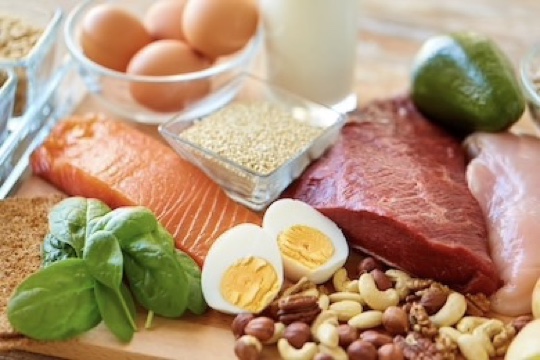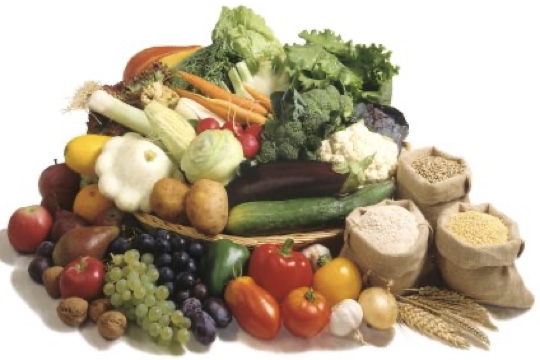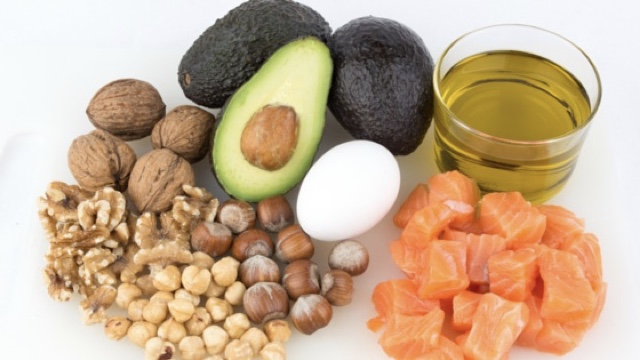
Learning about the Nutritional Basics, I remember when I started on my fitness journey that I was encouraged to eat more protein, complex carbohydrates and more fat. I was a bit sceptical because at the time my sons were body building and working on gaining weight and having copious amounts of protein, carbohydrates and fat. So in my mind I was thinking if I have lots of protein, carbs and fat I will gain weight! I didn’t understand the real benefits of these macronutrients.
Studying Nutrition and learning the Nutritional Basics has helped me better to understand the benefits and provisions of these macronutrients in our bodies. They are substances needed for growth, metabolism and other body functions and also gives us energy in our daily lives.

Protein
Protein is essential in growing, repairing and replacing tissue. It is actually quite remarkable the effect of protein in our bodies. Protein is made up of amino acids. There are 9 essential amino acids that the body cannot make by itself, meaning they must be ingested through foods. Most animal proteins such as beef, eggs, chicken, fish and poultry contain all of the essential amino acids, and so they are referred to as a complete protein. (Of note, soybeans, hemp and quinoa are the only common plant based foods that are complete proteins).
The major roles of protein in the body include:
- Satiety – keeps you feeing fuller for longer and therefore reducing your feelings of hunger.
- Growth and maintenance – muscles, tendons, membranes, blood, skin, hair, bones and internal organs.
- Digestion – all enzymes are made of proteins which facilitate chemical reactions in the body.
- Immunity – immune system antibodies which help in protecting against disease.
As the body does not store future sources of protein it is recommended to have a regular intake of protein with each meal. The RDI (Recommended Daily Intake) is 0.75 grams per kilogram of body weight and this may be higher for athletes in training.

Carbohydrates
Carbohydrates is the term for the group of foods made up of sugars, starches and dietary fibre. All carbohydrates contain sugars, however it is their chemical structure that determines their impact on health, energy production and maintenance.
The primary function of carbohydrates is:
- to provide energy to the body
Simple carbs are those found in white bread, pasta, lollies/sweets and baked goods. They require little digestion and hit the bloodstream quickly giving a quick burst of energy to the body they are either used up or stored as fat and typically provide little or no nutritional value.
Complex carbs found in vegetables, fruits and whole grains provides energy to the body over a more sustained period of time due to the body first breaking them down into sugar molecules so they are small enough to be absorbed. Also these carbohydrates contain little or no fat and can therefore promote weight loss and also delay the onset of hunger by providing the body with glucose over a longer duration.
The carbohydrates you eat are broken down into glucose, which is one of the main fuels your body needs to give you energy and to carry out normal cellular processes. Your body is able to use carbohydrates for immediate use, but it can also store it in your muscles and liver to draw upon when needed.
The Result
Whether a cupcake or sweet potato, the body handles all carbohydrates the same way, breaking them down into the individual sugar molecules that make them up. There is one exception: dietary fibre. It is a kind of carbohydrate that cannot be broken down by the human digestive system. However is essential for good health by maintaining the health of the small and large intestines. This prevents constipation and reduces the risk of several cancers. It is important to remember to drink plenty of water as fibre absorbs the water to keep the waste soft and move it.
RDI (Recommended Daily Intake) of carbohydrate is 80 grams per day, this will be higher if you are training for long periods of time.

Fats
The concern that eating FAT makes one fat is one of the biggest nutrition myths going. Fats are actually an important factor in the maintenance of human health and the other main fuel for the body.
The primary function of fats in the body is:
- to supply continuous energy
- insulation and warmth to the body.
- the absorption of vitamins A, D, E, and K
- Enables hormones to work properly
- Helps burn fat
- Protects organs
When we eat good sources of fat we tend to eat less to feel satiated, meaning we eat less and feel fuller for longer! Plus fat also makes food taste better. We need a good amount of healthful fat to function best and to maintain a healthy body weight and ensure a good and even supply of energy across the day. As a matter of fact, about 30% of our RDI (Recommended Daily Intake) should come from this marvellous macronutrient. Good sources of fat are nuts, seeds, avocado, olives, salmon, coconut, eggs and grass fed red meat and butter.
What to do?
Education is key to understanding the Nutritional Basics of what it is that your body needs and how you can fuel your body and improve your health through eating whole foods. Wholefoods provides nutrient density and by eating whole foods you eliminate potentially harmful substances found in processed foods that disrupt the body’s systems. Ask yourself what knowledge or information do I need right now to help me achieve my health goals? There are some amazing documentaries i.e. FoodMatters TV https://www.foodmatters.com and books that can provide you with the information you are seeking.
It is incredible learning about the body and how what we put in our mouth has so much affect on our health.
I truly believe in the saying, “You are what you EAT”
Leave me a comment below and let me know how you are doing! I love hearing from you.
Be Well
xx


